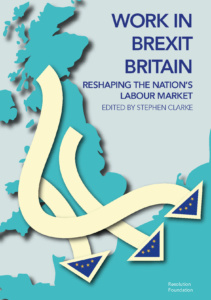British employers are having to raise their pay offers in the face of growing recruitment problems, two surveys showed on Wednesday, following a fall in the number of European Union workers since the Brexit vote.

Stronger pay growth would ease a big problem for Britain’s economy — wages lagging inflation — and could add to the case for further interest rates hikes by the Bank of England, which last week raised rates for the first time since 2007.
The Recruitment and Employment Confederation said its monthly survey showed starting salaries rose in October at the second-quickest rate since November 2015.
“We already know that EU workers are leaving because of the uncertainties they are facing right now,” REC chief executive Kevin Green said.
“We therefore need clarity around what future immigration systems will look like. Otherwise, the situation will get worse and employers will face even more staff shortages.”
Separately on Wednesday, the Bank of England said recruitment difficulties had intensified and were above normal in a range of activities.
The BoE report, based on the findings of its regional agents across the country, said companies expected pay settlements next year to offer increases of around 2.5–3.5 percent rather than the 2–3 percent range seen during 2017.
Last week, the BoE predicted overall pay growth of around 3 percent next year, up from just over 2 percent this year.
Britain’s official statistics agency said in August that net migration fell to its lowest level in three years with more than half the drop caused by European Union citizens leaving and fewer arriving since the Brexit vote.
REC said its survey, conducted with data firm IHS Markit, showed the availability of permanent and temporary workers continued to fall sharply last month.
Last week, the Bank of England raised interest rates for the first time in 10 years, in part because it expects the plunge in unemployment in Britain will soon start to push up wages.
The BoE also thinks slower growth in investment by businesses ahead of Brexit will aggravate a problem already facing Britain’s economy: that it cannot grow as fast as before without generating extra inflation pressure.
In its regional agents report, the BoE said business investment would continue to grow at a modest pace over the next year before weaker increases over the following two years.
“Economic uncertainty was the biggest drag on investment plans,” the BoE said on Wednesday, citing a survey of 375 firms.
“Expectations about future trading arrangements and other factors related to the United Kingdom’s decision to leave the European Union, such as concerns around the future availability of overseas labour, were also reported to be restraining investment,” it said. – Reuters
Kindly follow us on twitter:@AfricanVoice2










